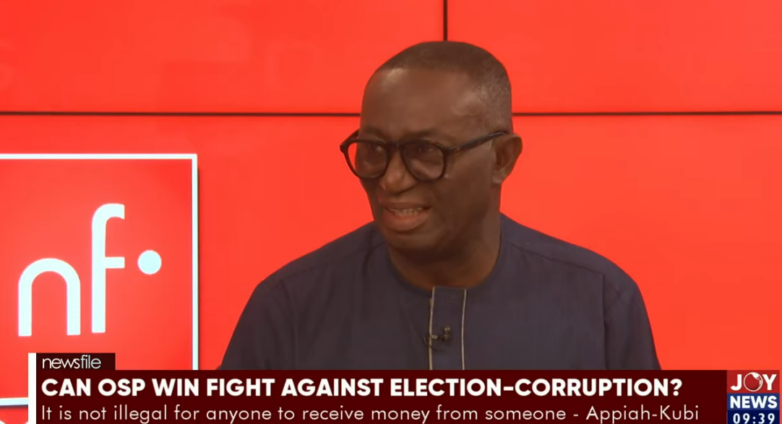
Audio By Carbonatix
Member of Parliament for Asante-Akim North, Andy Appiah-Kubi, raised concerns about a growing trend where government appointees are allegedly employing undisciplined means to oust MPs with whom they are supposed to collaborate.
Mr Appiah-Kubi emphasised the collaborative nature that should exist between MPs and executives, noting that the distribution of appointments, including the selection of CEOs, is meant to facilitate cooperation for the equitable distribution of power.
This comes in the wake of the arrest and subsequent release of National Entrepreneurship and Innovation Programme (NEIP) Chief Executive, Kofi Ofosu Nkansah over accusations of using public funds to fund personal parliamentary aspirations.
Speaking on JoyNews’s Newsfile, the Asante-Akim North MP expressed worry that in some cases, appointees, particularly CEOs, have become more resourceful than MPs while having fewer responsibilities.
According to the Subsidiary Legislation Committee member, some CEOs have access to resources that they use to benefit constituents, bypassing MPs in the process directly.
He suggested that these appointees may attempt to replace MPs, leveraging opportunities to rally support and convey to constituents that the MPs are ineffective in serving their interests.
“They [CEOs] meet [during] monthly meetings, so they become very close friends. So that CEO from your constituency will also nominate somebody to his friend [for example], Scholarship Secretariat CEO who is meeting him every month and then they will put in Asante Akim North ‘Kwasi Mensah’.
"Meanwhile, the MP doesn't know ‘Kwasi Mensah’, it is his friend, another CEO who has brought ‘Kwasi Mensah’… The CEO will come back and tell the constituents that Appiah-Kubi who is your MP cannot do this. I, who is the CEO, have done this and therefore I will serve you better than if I was selected," he said.
This practice, he argued, has the potential to create friction within political parties, especially during internal elections.
The MP warned that if not addressed, such conflicts could become perpetual and hinder the effective functioning of political parties and governance.
"I see this whole indiscipline is within the government and within the parties. We must tackle it. Otherwise, there will be perpetual conflict every year, every year when we have elections," he added.
Latest Stories
-
Gyakie pays tribute to Ebo Taylor, credits him for shaping her sound on BBC
2 minutes -
Inusah Fuseini backs OSP amid dismissed petitions
20 minutes -
Hajia Amenu calls for youth engagement and cautions against galamsey
28 minutes -
CJ dismissal of EC, OSP leadership petitions strengthens institutions – Inusah Fuseini
1 hour -
Inusah Fuseini calls for stronger cocoa production systems
2 hours -
Burkina Faso attack: Hajia Amenu urges support for local produce; calls for protection of women, children
2 hours -
Freedom isn’t enough, State must protect citizens — Inusah Fuseini on sex exploitation
2 hours -
Russian sex video: Diplomacy alone not enough, Ghana must reinforce internal security – Effia MP
3 hours -
GHS condemns attacks on staff, pledges enhanced security measures
3 hours -
Ghana must strengthen cybersecurity amid online exploitation concerns – Gloria Amenu
3 hours -
Demand TikTok remove explicit videos of victims – Gloria Amenu urges gov’t
4 hours -
Gender Ministry must provide psychological care for exploited women – Gloria Amenu
4 hours -
Trump lashes out at Supreme Court justices over tariffs ruling
5 hours -
Refrain from mass marketing or public promotional campaigns on virtual assets – BoG to VASPs
6 hours -
Government bans land transit of cooking oil; orders crackdown on customs complicity
6 hours

